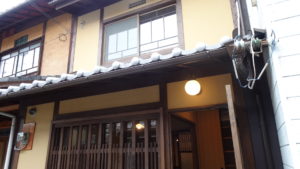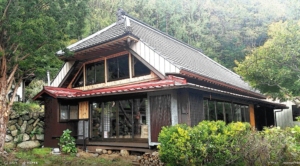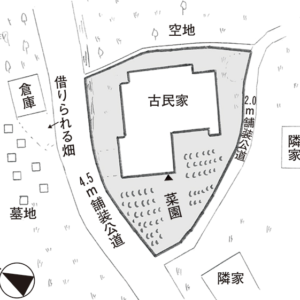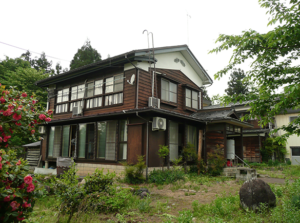Invest in Japan’s Cultural Heritage:
How Foreign Buyers Can Transform
Abandoned Akiya Homes
into Profitable Ventures
As Japan’s population declines and properties go unclaimed, an emerging segment of buyers is seeking out
rural architecture in need of renovation.
There are about 8.5 million abandoned houses, or akiya, across Japan,
accounting for roughly 14% of the country’s housing stock.
This number is expected to rise as the population continues to shrink.
According to an article in NYT, Australian software developer Jaya Thursfield and his Japanese-born wife,
Chihiro, purchased an akiya for 3 million yen (about $23,000) after relocating from London to Japan.
The couple has since spent about $150,000 on renovations and documented their progress
on YouTube, gaining over 200,000 subscribers.
The Japanese government and local authorities are implementing measures to
address the growing number of akiya,
including raising property taxes on neglected houses and providing subsidies for demolitions.
Some municipalities are also compiling listings of vacant houses for sale or rent,
known as “akiya banks.” Private real estate companies have begun to
capitalize on the akiya glut, matching vacant homes
with interested buyers.
Many people, especially those who have been spurred by the pandemic,
are now attracted to the idea of rural living and the opportunity to acquire
undervalued properties in the Japanese countryside.
The rising interest in akiya properties has led to a new market of buyers
who appreciate the uniqueness of rural Japanese architecture and are willing
to invest in restoring and preserving these homes.
This trend has also given birth to a cottage industry of akiya consultants,
who help settle family disputes over inherited properties and
provide guidance on how to repurpose them.
The Japanese government’s efforts to tackle the akiya issue include
a recent legal revision that allows local authorities to raise property taxes
on neglected houses if owners ignore requests to maintain or demolish them.
Additionally, the city of Kyoto has approved a plan to tax owners of empty homes, marking a first in Japan.
Real estate consultancy firms like Akiya & Inaka are springing up to capitalize on the akiya trend,
offering services to match vacant homes with interested buyers.
With the pandemic changing people’s mindset towards rural living, these firms have experienced
a significant increase in inquiries from both local and international clients.
Conservationists and those passionate about preserving Japanese culture,
like author and Japanologist Alex Kerr, have also been advocating for the restoration
and revitalization of rural properties.
They emphasize the importance of preserving the unique architectural techniques,
use of materials, and the natural environment surrounding these old homes.
As the market for akiya properties continues to grow,
it’s likely that more people will choose to invest in rural Japanese architecture
and embrace the opportunity to preserve cultural heritage while creating their dream homes.
The growing interest in akiya properties is not only attracting individual buyers
but also inspiring entrepreneurs to develop innovative businesses
around these abandoned homes.
Some international buyers are opening Airbnb rentals in formerly empty houses,
while others are organizing events like minka (traditional Japanese rural house)
conferences to share knowledge and expertise on
restoring and preserving these unique homes.
This trend also has the potential to benefit rural communities in Japan,
as an influx of new residents and tourists can provide a much-needed economic boost
to these areas. Revitalizing abandoned homes can help transform the image
of these regions and encourage more people to consider rural living
or investing in akiya properties.
Furthermore, the increased demand for akiya homes may prompt local municipalities
to improve their “akiya banks” by partnering with experienced real estate professionals
who can better serve the needs of modern buyers and sellers.
This collaboration could lead to more attractive listings and higher success rates
in matching vacant homes with interested buyers.
The akiya trend also highlights the importance of addressing Japan’s ageing population
and the challenges it poses to the nation’s housing market.
By promoting rural living and investing in the restoration of abandoned properties,
the Japanese government and local authorities can work towards
mitigating the negative impact of an ageing and shrinking population.
In summary, the growing interest in akiya properties offers a unique opportunity
to preserve Japanese cultural heritage, revitalize rural communities, and
address the challenges posed by the country’s declining population.
As more people embrace the idea of rural living and investing in abandoned homes,
this trend may have a lasting positive impact on Japan’s
housing market and cultural landscape.
Are you ready to explore the potential of Japan’s akiya properties?
Contact our expert team today to discover how we can guide you
through the process of finding and investing in these unique homes.
Source:https://news.yahoo.com/japan-millions-empty-houses-want-183040859.html?fr=sycsrp_catchall
*
Please note that for akiya transactions, we can only serve
as consultants
during flexible hours and not as agents.
This is because akiya properties are
typically too inexpensive
to warrant working on a commission basis.
Toshihiko Yamamoto
Real estate investing consultant and author.
Founder of Yamamoto Property Advisory in Tokyo.
International property Investment consultant and licensed
real estate broker (Japan).
He serves the foreign companies and individuals to buy and sell
the real estates in Japan as well as own homes.
He holds a Bachelor’s degree in Economics from
Osaka Prefecture University in Japan
and an MBA from Bond University in Australia
Toshihiko’s book, “The Savvy Foreign Investor’s Guide to Japanese Properties: How to Expertly Buy, Manage and Sell Real Estate in Japan” is now out on Amazon, iBooks (iTunes, Apple) and Google Play.
About the book
Amazon.com Link





